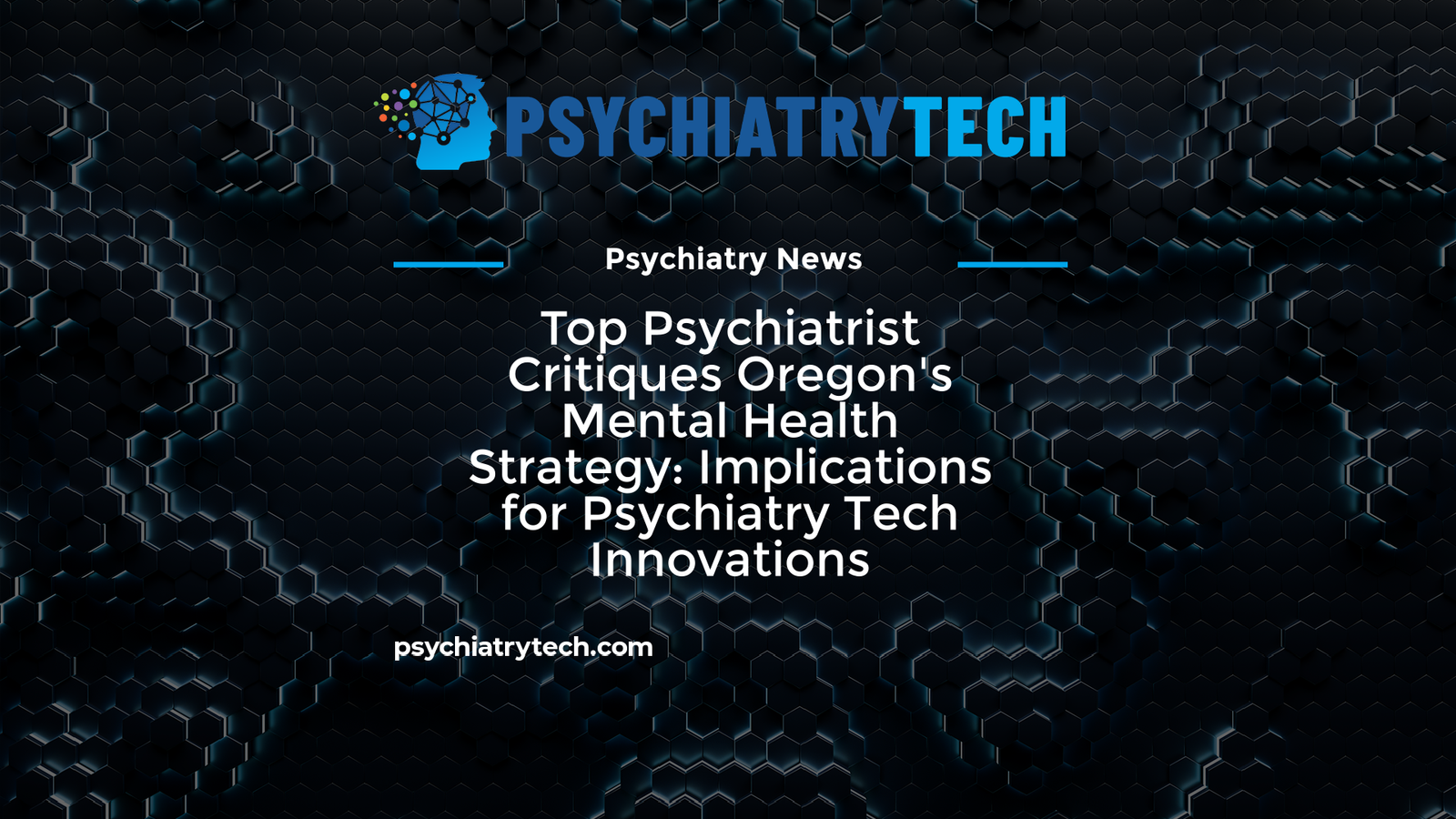Top Psychiatrist Critiques Oregon’s Mental Health Strategy:
Implications for Psychiatry Tech Innovations
In a recent interview, Oregon’s leading psychiatrist expressed concern over the state’s approach to mental health. Dr. Laura Rodriguez, who heads the Oregon Psychiatric Association, believes that the state’s current approach, which focuses on community-based treatment and recovery, is insufficient.

Discover The World's MOST COMPREHENSIVE Mental Health Assessment Platform
Efficiently assess your patients for 80+ possible conditions with a single dynamic, intuitive mental health assessment. As low as $12 per patient per year.
According to Dr. Rodriguez, Oregon needs to increase its investment in inpatient psychiatric facilities to provide more immediate and intensive care to people with acute mental health issues. She argues that without these facilities, many individuals with severe mental health conditions will be left without adequate treatment options.
This criticism has important implications for the field of psychiatry tech. As mental health professionals continue to seek innovative ways to provide care, it’s essential to take into account the limitations of current approaches. The push to expand community-based treatment, while valuable in many ways, may not be sufficient to meet the needs of all patients.
One potential area for innovation is inpatient psychiatric facilities. With the right technological tools and resources, these facilities could offer more personalized and effective care. For example, wearable devices that monitor physiological indicators could give healthcare providers a more complete understanding of their patients’ needs. Advanced data analysis and machine learning could help identify patterns in patients’ behaviors and suggest more effective treatment plans.
In addition to technology, there are other areas where psychiatry tech could provide valuable support to inpatient facilities. Telemedicine platforms could help connect patients with providers who are physically distant, expanding access to care. Electronic health records systems could centralize patient information, allowing providers to better coordinate care across teams and settings.
Despite the potential benefits, there are also challenges to integrating new psychiatric tech into inpatient settings. One of the most significant is the need to balance technology with human connection and empathy, which are critical components of effective mental health care. As healthcare providers seek to leverage technology to deliver better care, they must also remain mindful of the unique needs and vulnerabilities of their patients.
Ultimately, Dr. Rodriguez’s critique of Oregon’s mental health strategy is an important reminder of the ongoing need for innovation in the field of psychiatry. As mental health challenges continue to pose significant risks to individuals and society, it’s up to mental health professionals to stay ahead of the curve in leveraging technology to improve care.
If you’re interested in learning more about new developments in psychiatry tech, be sure to follow Psychiatry Tech. Our blog regularly features insights and updates on the latest trends and tools in the field, with a focus on how they can be used to improve mental health care for everyone.
Key Takeaways:
- Oregon’s leading psychiatrist has criticized the state’s approach to mental health, arguing for more investment in inpatient psychiatric facilities
- The critique has important implications for psychiatry tech, highlighting the need to remain attuned to the limitations of community-based treatment and recovery
- Inpatient facilities offer the potential for innovation in areas such as wearable devices, telemedicine, and electronic health records, but integrating new technology requires balancing it with human connection and empathy
- Follow Psychiatry Tech for updates on new developments in the field of psychiatry tech
What do you think about the role of technology in mental health care? Share your thoughts by sharing this post on your social media platforms using the hashtag #PsychiatryTech!

